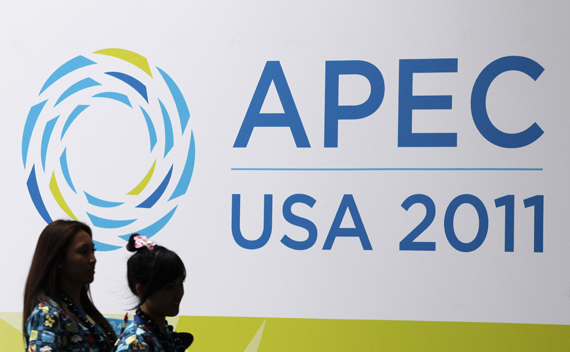Public Opinion on Trade: Pointers for the APEC Summit
More on:

As U.S. President Obama heads to Hawaii for the Asia Pacific Economic Cooperation (APEC) summit, the question naturally arises: What do voters in the United States actually think about trade liberalization—and globalization in general? To help answer that question, this week the IIGG program and our partners at Worldpublicopionion.org have just released an updated installment of our digest on “Public Opinion on Global Issues,” focused on the global economy. This 2011 update presents some striking findings on what U.S. citizens think about trade.
In Honolulu, the twenty-one APEC leaders will recommit themselves to liberalizing trade across Asia and the Pacific. The centerpiece, if the Obama administration gets its way, will be broad endorsement of a “Trans Pacific Partnership” (TPP), a regional trade agreement. The United States has already been pushing the TPP scheme with eight APEC nations (Australia, Brunei, Chile, Malaysia, New Zealand, Peru, Singapore, and Vietnam). In Hawaii, he’ll seek support from the rest of the membership for a vast free trade arrangement spanning from China to Chile.
Based on recent polling data, however, the president may have a harder time selling the TPP at home than abroad. To be sure, the domestic picture is not all bleak. Despite the brutal economic downturn, a majority of the American public remains broadly supportive of globalization. In a 2011 Pew poll, for example, 67 percent agreed that “the growing trade and business ties between our country and other countries” is positive for the United States.
On the other hand, this support was the lowest among twenty-one countries polled—-the global average was 84 percent. And if one digs deeper, nagging public suspicions emerge. In a 2010 survey by the Chicago Council on Global Affairs (CCGA), majorities believed that globalization had a negative effect on “job security for American workers” (65 percent), on “creating jobs in the U.S.” (60 percent), on “the environment” (55 percent), and on “the next generation of Americans” (51 percent). More positively, majorities believed globalization was positive for “consumers like you” (59 percent) and “your own standard of living” (51 percent).
Clearly, the public is ambivalent.
Similar patterns hold on attitudes toward international trade. A majority of U.S. respondents consider its overall impact to be “good”, though at a far lower rate (54%) than the global average (72%). Most perceive trade as positive for the U.S. economy, for U.S. companies and consumers, for their own standard of living, and for their families. And yet they are much more likely than respondents abroad to believe that trade undermines domestic job creation and job security. The public has not (yet) turned protectionist: only 42 percent support government policies “making it harder for foreign companies to sell products here [in the United States].” But the vast majority—some 83 percent in a 2010 CCGA poll—believes that economic competition from low-wage countries poses an important or critical threat to the United States. Such concerns may explain why U.S. public support for specific bilateral trade deals has fallen off in recent years.
The digest’s findings suggest that the Obama administration—and its allies in Congress—will need to address citizens’ skepticism over international trade to win domestic support for the TPP. One critical step will be to include in any regional deal specific provisions for trade adjustment assistance (TAA) to help train displaced workers. While TAA remains a hotly debated partisan issue within Congress, public opinion data suggests that including TAA provisions can dramatically increase domestic support for trade liberalization. In a 2010 CCGA poll, 83 percent of respondents who support free trade agreements favored including such assistance in trade deals.
Beyond provisions to take care of labor, the U.S. public overwhelmingly supports the incorporation of environmental protection provisions in trade deals. Indeed, a full 93 percent of Americans believe that “minimum standards for protection of the environment” should be required in all trade deals (higher than the 84 percent average among publics polled abroad). While environmental provisions remain toxic to many GOP conservatives, ultimate passage of any TPP will ultimately require significant Democratic support. And a condition of that support will be assurances to the public that free trade is “green” trade.
The digest’s findings on U.S. public support for international trade demonstrate the need to address citizens’ skepticism over its benefits. The trend of globalization is impossible to reverse, but U.S. policymakers need to understand the reasons that significant portions of the U.S. population view it as negatively affecting their lives—and address these concerns.
View the entire digest of World Opinion on the Global Economy at www.cfr.org/public opinion. View key findings and a short introduction at worldpublicopinion.org.
More on:
 Online Store
Online Store